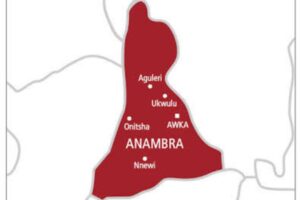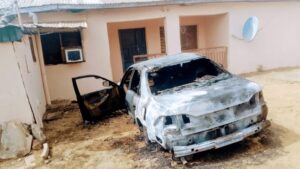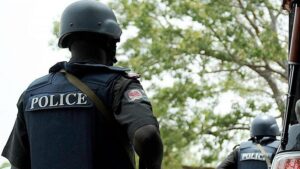COVID-19: States gear up for surge in infection rates
COVID-19: States gear up for surge in infection rates
• Panic as Nigerians shun safety protocols

By Moses Emoriken, Abuja/Osagie Otabor, Akure/Kolade Adeyemi, Jos/Toba Adedeji, Osogbo/David Adenuga, Bauchi/Chris Oji, Enugu/Bisi Oladele/Yinka Adeniran, Ibadan/AbdulGafar Alabelewe, Kaduna/Okungbowa Aiwerie, Asaba/Mike Odiegwu, Port Harcourt
Government and its various agencies are facing huge obstacles in their bids to control the Covid-19 surge across the country following flagrant violation of safety protocols by many Nigerians.
According to reports from different parts of the country, even law enforcement officers are not excluded in the violation of the safety protocols.
Top on the list of the breaches is non-use of face mask by most Nigerians, even in crowded places, our reporters said.
Many people also care less about social distancing while others still go to parties and club houses despite the restrictions placed by government on such gatherings.
Health experts warn that it is in the best interest of everyone to protect his or her life by observing the safety protocols because the second strain of COVID-19 is deadlier than the first.
Lagos State Health Commissioner for Health, Akin Abayomi, reported yesterday that bed occupancy at #COVID19 Care centres across the state had increased to 53 per cent from only 6.7 per cent in the first week of last month.
He also said testing capacity had increased with public laboratories accounting for 52% of all samples tested so far.
This came on a day the state police command paraded 243 club goers arrested on Friday alone during a raid of night clubs in Lagos for violating the COVID-19 safety protocols.
The federal and state governments are reactivating their Coronavirus testing facilities as well as the isolation and treatment centres, following the surge in infections.
Giving an update on Saturday on the situation in Lagos State, Abayomi said there are currently 21 accredited private and four public laboratories dedicated to COVID-19 cases.
He said occupancy at COVID-19 centres in the state decreased slightly from 33 beds or 6.7 per cent in the first week of December 2020 to 31 beds or 6.3 per cent in the second week of the month, only to rise to 62 beds (12.4 per cent) in the third week and 120 (25.4 per cent) in the fourth week.
In the first week of this month, it had risen to 194 beds or 45 per cent, and by yesterday, it was 53 per cent.
As he updated the records, the police paraded 243 people, among them military and police personnel, who were arrested on Friday at club houses in Lagos for violating the COVID-19 protocols and the 12 midnight to 4am curfew.
Those arrested also included strippers.
The suspects were rounded up at Lounge 38, Bode Thomas Street, Surulere and Club Victoria’s on Victoria Island by a police team led by Commissioner of Police Hakeem Odumosu in the early hours of Saturday.
Odumosu, who personally paraded the suspects, expressed worries over the flagrant disregard for COVID-19 protocols by many residents of the state despite the implications for the health of the generality of the people.
He vowed that the police would not allow law breakers to continue to endanger the lives of other people.
He warned club house owners in particular to shut down or risk the consequences of their actions.
The arrested persons were charged before two mobile courts with each of them fined N20,000.
LASUTH advises Nigerians on seriousness of COVID-19 second wave
Also on Saturday, the Lagos State University Teaching Hospital (LASUTH) advised Nigerians to accept the seriousness of the second wave of coronavirus (COVID-19) and play their roles in saving lives by complying with safety measures.
Prof. Adetokunbo Fabamwo, Chief Medical Director (CMD) LASUTH, in a statement, noted that the public response to the pandemic had been less than ideal, adding that the spike in the daily infection numbers showed that Nigeria has started experiencing the second wave of COVID-19.
“There has been a rapid and steady rise in the number of positive cases reported daily as well as a rise in positivity rate,” he said.
Continuing, Fabanwo said: “The positive rate rose from an average of about eight per cent in November 2020 and currently stands at an average of 28 per cent.
“The disease is affecting both the young and the elderly and some affected people may experience long-term sequel of the disease.
People are dying from this disease and it is imperative that we accept the seriousness of this situation and play our parts in combating the scourge.”
According to him, Nigerians have grown complacent and are downplaying their personal risk and the risk to their loved ones.
Fabamwo called for compulsory and proper wearing of facemask when interacting with others, regular hand washing and good respiratory hygiene to minimise the spread of the virus.
“Avoid self-medication and see a health practitioner if you experience ill-health. Do not keep treating malaria multiple times, it might be COVID-19, and you should get tested,” he advised.
The CMD advised health workers to have a high index of suspicion for COVID-19, adding that if a client was treated multiple times for a febrile illness or malaria they should request a COVID-19 test.
Abuja facilities revved up for action
All the Covid-19 facilities in Abuja have been reactivated to handle as many cases as possible.
These include the National Hospital; the Federal Medical Centre, Jabi; University of Abuja Teaching Hospital, Gwagwalada and Thisday Dome Treatment and Isolation Centre.
Spokesperson of the National Hospital, Abuja, Dr. Tayo Haastrup, told The Nation that the hospital was ready to fulfill its obligation to Nigerians at any time.
He said the hospital currently has “between 7 and 10 Covid-19 patients.”
The Federal Medical Centre, Jabi, according to its Public Relations Officer, Olomofe Kayode, has “a temporary holding centre which is meant for observation of Covid-19 patients.”
He said: “But it is not really an isolation centre. The centre holds 10 patients at a time.”
The Isolation Centre in Gwagwalada has three suits, A, B, and C. But only two of these are in use.
Of the two in use, one has 12 beds while the other has 16, bringing the total to 28 bed spaces.
Suspected cases are held at the Old Eye Centre in the hospital till their results are out before being transferred to the isolation centre, if they are positive.
A source who spoke with The Nation, said: “The third section of the isolation centre is not in use because there is no oxygen there. That non-functional section could have conveniently catered for 10 persons.
“However, directly opposite this isolation centre is a purpose-built Infectious Diseases Centre that is supposed to have 30 beds. It was commissioned in September last year, but there is no oxygen and no personnel there.
“The place the isolation centre is right now is actually a temporary site. The real isolation centre is supposed to be the purpose-built Infectious Diseases Centre.”
The source added: “What we are saying now is that this is a pandemic, and they could have activated the Infectious Diseases Centre so that it will now serve as an extra place.
“If that was done, we would have 58 functional beds for patients. As we speak now, there is no redundancy in the functional 28 bed capacity.
“As at yesterday (Thursday), there were eight new admissions and there were a total of 32 patients, with only one person discharged.
“You can see that the place is already overwhelmed. Meanwhile, there is a 30-bed facility that could have easily been activated.
“So, if you activate the 30 extra beds with the 28 functional beds plus the 10 non-functional beds, you have 68 bed spaces. The thing that is stopping it is oxygen. This doesn’t make sense at all.”
Thisday Dome, which was commissioned in May last year, is one of Nigeria’s most comprehensive facilities for COVID-19 treatment, with 350 beds scalable to 500.
Speaking with The Nation, the Team Leader, Thisday Dome Treatment and Isolation Centre, Dr. Molokwu Victor, said: “We have adequate oxygen for now and currently we have seven patients on oxygen.
“In fact, the reason why we had issues last month was because the oxygen plant broke down. But arrangements were made with some facilities to provide us with oxygen.
“The issue we had was just for a week or so and wasn’t really a very big issue, and we were able to cope.
“Ours is a 350 capacity facility. The truth is that as we are discharging patients, more are coming.
“However, the highest we have had at a particular time was about 80 patients, and that was in December. Currently, we have about 34 patients on admission.
“We need the government to do more.
“To be honest with you, in the FCT, we do not lack personal protective equipment (PPEs) and we have most of the drugs. However, the area of allowances is where we still have issues with the government.
“The last time that was paid was sometime in July last year. Since that time, nothing has been done even though there have been promises that they were going to do a lot of things about it.”
Govt buckles up as COVID-19 cases rise in Oyo
The second wave of the Coronavirus pandemic in Oyo State is growing. Hospitalization/isolation has grown by at least 50 per cent in the last two weeks in the state, as more people are confirmed to have been infected with the virus.
From just over 400 hospitalizations on December 25, 2020, the state now has 683.
The state has recorded 4,157 positive cases with 53 deaths as at January 8, 2021. A total of 3,431 patients have so far been discharged.
The state has 30 testing centres with a centre in practically each of the 33 local government areas. However, most of the centres serve as collection centres. Samples are taken there and sent to the laboratories in Ibadan for testing.
The COVID-19 Incident Manager in the state, Dr Olabode Ladipo, lamented that residents stopped coming for testing for some weeks, believing that the pandemic was over.
He said they only started coming back in December after the second wave came. Although a source said only a maximum of 15 centres are now functional, Dr Ladipo said no centre was shut down and that it was people that stopped coming.
At the Olodo Infectious Disease Centre in Ibadan, the state capital, activities have picked up, unlike in November when it looked deserted because of absence of crowd of patients.
The University College Hospital (UCH), Ibadan is also testing and receiving patients into its facilities.
Dr Ladipo said centres in Saki and Ogbomoso had come alive since the second wave started. More samples, he said, were coming from the centres stably.
Oyo State has one of the best equipped infectious disease centres in Nigeria. Its 100-bed centre at Olodo area of Ibadan is equipped with the very best machines to test and manage the infection.
It was put in place in April, last year at the heat of the pandemic.
The centre has a well-equipped Intensive Care Unit (ICU) which has two ventilators, three C-Pap machines, 13 electric auction machines, two anesthetic machines, three oxygen delivery points, four patient monitors and 10 pulse oxymetres, among others.
The immediate past Chairman, Nigerian Medical Association (NMA) in the state, Dr Akin Sodipo, expressed fear at the way people seemed to have lost interest in taking precaution against the virus, saying the government must look into the possibility of enforcing the observation of the protocols.
He also urged medical doctors to be more careful while giving care and attention to patients, adding that they must ensure they report any strange case at the earliest possible time so as not to fall victim of the virus, especially in the face of insufficient Personal Protective Equipment (PPEs) the world over.
Kaduna Isolation, testing centres running optimally
Kaduna, which is one of the epicentres of the infection in Nigeria, has all its five isolation centres and testing centres functioning optimally.
As for the laboratory testing centres, there is one at the Ahmadu Bello University Teaching Hospital, Zaria, one at the Yusuf Dantsoho Memorial Hospital, one at the Barau Dikko Teaching Hospital, several mobile laboratories and a private laboratory, the DNA Lab which was the pioneer accredited COVID-19 testing centre in Kaduna.
The Laboratory Manager of the Kaduna State Ministry of Health’s Molecular Laboratory, Mrs. Funke Abolarin, said with the highest form of laboratory safety equipment in place and capacity to test up to 150 samples in a day, the centre is among the very best molecular laboratories in Nigeria.
She told The Nation: “We have bio-safety level four; that is the gloves box. That is the highest level of safety in any molecular laboratory.
“Once you have this in place, the safety of your staff is guaranteed.
“We have two PCR machines. Each of those machines runs 48 tests at a time.
“Then we have another machine called the Gene Expert. All these make the centre one of the best in Nigeria today.
“With these machines, we can test up to 150 samples in a day. It takes up nine to 10 to carry out each round of tests.”
NMA to the rescue in Delta
The Delta State Chairman of the Nigeria Medical Association (NMA), Dr. Emmanuel Nwose, wants the State government to reopen Covid-19 treatment centres across the State and reinstitute the management team.
Nwose, in an interview with The Nation, said the NMA would embark on an enlightenment campaign because of the widespread belief that COVID-19 is not real among ordinary Deltans.
President of the National Association of Resident Doctors, Delta State Teaching Hospital (DELSUTH), Oghara, Dr. Rukevwe Odukuye, while corroborating fears of lukewarm attitude on the part of government, expressed concerns over the safety of health workers.
He stressed the lack of PPEs as hindering efforts at checking the spread of the disease.
According to him, personal protective equipment (PPEs) were not readily available as they were during the spike of the disease months ago.
He, however, praised DELSUTH management for being proactive, stressing that an 80-bed ward was opened to manage suspected patients.
“As resident doctors, our major concern is our lives first, especially because we have to see patients whom we cannot tell their status especially now that the centres have been shut down.
“And then, the treatment centre. It is very difficult to treat patients since all the forms of protection are no longer there. I don’t think anything special has been done.
“If we have to test patients, we have to send them to Asaba where they have the PCR test or Irrua,” Odukuye stated.
Delta Governor, Dr. Ifeanyi Okowa, in a recent event in Asaba, the state capital, while alerting Deltans on the reemergence of a virulent strain of COVID-19 pandemic, assured that there would not be another lockdown.
But he stressed the imperative of observing the COVID-19 protocols as prescribed
Second wave fears in Rivers spark increase in testing
Investigations revealed that the resurgence of the second wave of the virus has increased testing for it in Rivers State.
There are three major testing centres in the state located at the University of Port Harcourt Teaching Hospital (UPTH), the Rivers State University Teaching Hospital (RSUTH) formerly known as Braithwaite Memorial Specialist Hospital (BMSH) and the Indorama Eleme Petrochemical Limited (IEPL).
It was learnt that the IEPL is mainly reserved for the employees of the company and residents of its host community.
It was gathered that the testing centres were kept active by persons travelling outside the country. The government has made a document showing COVID-19 status a requirement for travelers.
The isolation and testing centres remain operational at the UPTH. The doctor in charge of COVID-19 at the hospital, Datonye Alasia, said the rate of positivity rate between October and late November had changed compared to previous development.
“We now have positivity rates of from over 10 to 20 per cent in a week, which is higher than what it used to be. Indeed, there is evidence of a second wave based on testing.
“More people are being tested because more people are having symptoms. Those who have contacts with people who have been diagnosed are also being tested. It is increasing the number of tested people,” he said.
He said despite the increase in testing, the testing capacity was still sub-optimal. He said in a day, the centre could run between 100 and 200 tests.
He said: “However, what we know is that the testing is still sub-optimal because many people are not coming out even when they have symptoms. So part of the message is that people should feel free to come out for testing.
“There are no consequences for doing so. It is better if people test and know. Once you know, it provides the opportunity for quick intervention.
“Most people with the disease survive. It is not like people will die. So, that mindset needs to change. Late presentation can make people die.
“In a day, we do between 100 to 200 tests depending on the volume, and the turnaround time for now is between 24 to 34 hours and results are out. It is a function of the number of people who come.
“On the average, what we are testing is higher. It takes a lot to conduct these tests. They come with significant cost and a lot of funding.”
When the pandemic broke out in Rivers, the government took stringent measures to contain it. But the government later lifted almost all the restrictions following a decline in infection rate.
Since the resurgence of the second wave, the government has been sensitizing people on the dangers of violating the Coronavirus protocol.
The state governor, Nyesom Wike, recently threatened to return the state to the era of lockdown regime if the people continued to violate measures put in place to check the spread.
Wike described as worrisome the refusal of most churches and markets in the state to enforce compulsory wearing of face masks in adherence to the COVID-19 protocol.
He said the state government initially relaxed the restriction on the number of persons who worshipped in churches, but with second wave of COVID-19, he would announce new stringent measures to check the spread of the pandemic.
He said: “When you go to some churches, they don’t wear mask. Go to market, they don’t wear mask. They believe COVID is not real.
“It’s not real because it has not happened to you; nobody had died whom you know.
“When somebody has died and the person was close to you, you will know that COVID is real.”
‘The people are the problem’
Many residents of Ondo State are unwilling to go for Covid-19 tests and the state government is not happy about the situation.
The state epidemiologist, Dr. Stephen Fagbemi, said it was worrisome that the people refused to believe that COVID-19 is real and killing people.
Dr. Fagbemi said unless the people begin to adhere to safety precautions, preventing the spread would be an uphill task.
He stated that it was a difficult task to convince people to go for testing or believe that the disease is real.
Chairman of the Inter-ministerial Committee on COVID-19, Prof. Adesegun Fatusi, called for a renewed media campaign to further strengthen health education, community mobilisation and stakeholders’ engagement as part of the strategies to control COVID-19 infection has been planned and would be rolled soon.
He said: “We have put many things in place. We have renewed campaign to reach out to the grassroots. The gap is about the behaviour of the people. They are not keeping to basic precaution.
“We have one testing lab in Owo. The one in Akure is ready and we are waiting for NCDC to certify. We have a new lab about to be finished in Ondo town. In two weeks time, we should have three testing centres in the state.
“Owo is carrying out 70 tests a day. We can achieve more in two weeks time when the two others are ready. Testing is about the willingness of the people to come out and be tested.
“Those being tested are those symptomatic and those that came in contact with those who are positive. We need to do more. People need to come out for testing so that we can determine how far the disease is spreading, driven by data.
“At the beginning of this epidemic, we had one. But we now have four isolation centres. Our plan is to support each general hospital to have an isolation centre.
“People should know that the second wave of COVID-19 is here. We all need to come together.”
Osun sets up third lab amidst the second wave, await NCDC accreditation
The Osun State Government has set up a new laboratory to scale up testing in the state.
The African Centre of Excellence for Genomics of Infectious Diseases at Redeemer’s University in Ede serves five states, namely, Osun, Oyo, Ekiti, Ondo and Kwara.
On August 20, 2020, the state, through the management of Osun State University, set up Multidisciplinary Research Laboratory for the test of COVID-19, Ebola, Lassa fever and other infectious diseases.
Recently, the state also set up another laboratory test of COVID-19 at Mercy Land Hospital to increase the number of tests in the state.
The Special Adviser to Osun State Governor on Public Health, Dr Siji Olamiju, told The Nation that the state had set up the third isolation centre to reduce the pressure on the existing ones and for the state to control the spread of the virus.
Dr Olamiju said: “The second wave is not that terrible in Osun because of our proactive measures.
“We are scaling up COVID-19 tests in the state based on the instruction of Governor Adegboyega Oyetola.
“In all our local government areas, we have our notification officers and anybody suspected to have the virus, we will conduct the necessary test to know what we need to do.
“We have National Centre for Disease Control (NCDC) accredited laboratory in Osun State University, and we have been having tests done in the place for over three months because the pressure we are having in getting our tests done at the African Centre of Excellence for Genomics of Infectious Diseases at Redeemer’s University, Ede, because it is serving five states: Ekiti, Osun Oyo, Ondo and Kwara.
“Currently, we have set up another laboratory at Mercy Land Isolation Center to scale up the test capacity. This is to ensure that we are in control of the virus by not allowing the cases to get worse.
“We are awaiting the accreditation of NCDC. That will bring the number of labs to three in the state. Two have been accredited and we are awaiting the accreditation of the third one.”
Also, he noted that the four isolation centres at the State Specialist Hospital, Asubiaro with 20 beds and also 8-bed intensive care unit, Obafemi Awolowo Teaching Hospital, Ile-Ife with 16-bed space,130-bed isolation centre in Ejigbo, and Mercy Land Hospital, Osogbo with 160-beds are all active for patients.
Only one isolation centre active in Bauchi
The Chairman of the Surveillance and Contact Tracing sub-committee of the Bauchi State Task Force on COVID-19 and Lassa Fever, Dr Rilwan Mohammed, said only one out of the six isolation centres in the state was in use amidst the second wave of COVID-19.
Mohammed, who is also the Executive Chairman of the Bauchi State Primary Health Care Development Agency, said six patients who were in severe condition after contracting the virus had been placed under intensive care at the isolation centre which is at the Abubakar Tafawa-Balewa University teaching hospital (ATBUTH) .
He, however, said the State government has placed 152 others who tested positive under home management.
He said: ‘’We currently have six patients under intensive care at the isolation centre at the ATBU teaching hospital. That’s only the isolation centre in use out of the six we have.
“The patients are severe cases. They need oxygen and ventilator while 152 others have been placed on home management by the government.’’
Enugu establishes sample collection centres in all 17 LGAs
At least a sample collection centre has been established in every LGA in Enugu State in addition to the seven centres that were donated by UNICEF.
There are also rapid response teams in all the LGAs, and contact tracers are always at alert to move in and trace patient’s contacts, accordingly.
Ambulances were bought, contracts were given for renovation, upgrade or building of new health facilities, just as funds were provided for the purchase of the best Personal Protective Equipment (PPE) and other critical materials.
There are two major active isolation centres in the state viz Enugu Diagnostic Centre and the Colliery Hospital. The University of Nigeria Teaching Hospital remained the major testing centre in the state.
In order not to overstretch the existing facilities, a full-fledged tertiary hospital is also being built at Igbo-Ano, with college of medicine facilities.
The new hospital will not only be useful in containing COVID-19, it will also ensure the training of health practitioners in the future.
Health Commissioner Ikechukwu Obi said in an interview that although the Covid 19 pandemic had inflicted massive economic and other burdens on the state government, the government never relented in continued scaling up of general health infrastructure for case management.
The commissioner applauded Governor Ifeanyi Ugwuanyi, for his administration’s ceaseless commitment and huge investments in the health sector and general war against the pandemic.
He reminded citizens that the “highly infectious disease was still in place and wreaking havoc.”
”As at December 16, (2020), we had a total of 9,591 reported COVID- 19 cases; with steady reports of cases from 15 Local Government Areas (LGAs) and we we collected over 7,484 samples,” he said
Plateau isolation, testing centres active, functional
The Plateau State Government says its five COVID-19 Isolation and testing centres are active and functional.
It also says it has adopted measures to curb the spread of the second wave of COVID -19 in the state.
The Secretary to the Government of Plateau State, Danladi Atu, who doubles as the coordinator of the state task force on COVID-19, told The Nation in Jos that the governor had directed that strong measures be taken to ensure that people are sensitised to observe all the COVID-19 protocols in order to curb the spread of the disease.
According to him, the government also adopted some measures including ban on all public gatherings and festivities.
He said, Governor Simon Lalong will sign an executive order that would mandate the prosecution of offenders.
According to him, between March and November last year, 200 cases were recorded, with 34 deaths.
It also added that places of worship had been ordered to cut down attendance to 50 per cent of their capacity.
”The use of facemasks should be enforced in all public places while social distancing, hand washing and other protocols are adhered to.
“COVID-19 testing should be enhanced in all local government areas while all sample collection centres be publicised to encourage voluntary testing.”
Also, the Commissioner of Health Dr. Nimkong Lar, said the Government has expressed concern over the increasing second wave of COVID-19 ravaging the state, lamenting: “We are now noticing some second wave rise in cases of COVID-19 affection in the state.
“This week alone, we are almost approaching 200 cases, which is not good for us. The number has risen rapidly.
“There is no doubt we have entered the second wave of the virus in Plateau State.
“But fortunately for us, all our isolation and treatment centres are opened as we have been using them all along, while modular testing has increased.”
The Nation













Post Comment